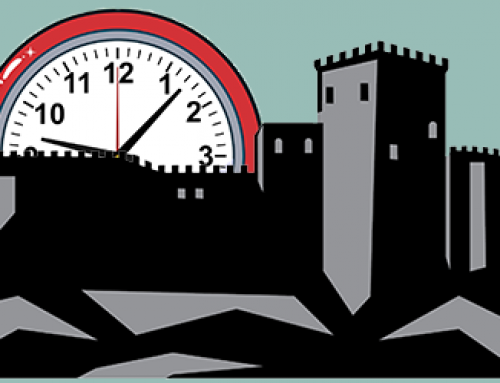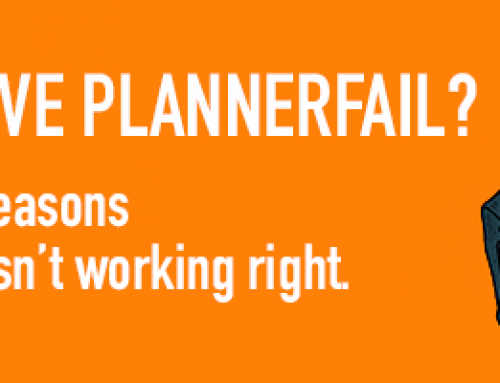Finding your way forward
We’re all a little shell shocked. Our ears are still ringing and eyes still blurry from the explosion of COVID-19 across the globe. We’ve now had a few weeks to absorb the blow, and it’s time to realize that we are standing at a crucial intersection and it’s essential that we choose our course.
We’re standing—all of us—at the crossroads of danger and opportunity, and the time to act is now.
Never let a good crisis go to waste
In 1959, John F. Kennedy, then still a senator, explained in a speech that “when written in Chinese, the word ‘crisis’ is composed of two characters—one represents danger and one represents opportunity.”
Although not 100% linguistically correct, his perspective on ‘crisis’ is dead on. Only about a dozen years earlier, Winston Churchill is credited with saying, “Never let a good crisis go to waste.”
These expressions sound like such contradictions—oxymorons. I mean, what good opportunity could possibly come out of a crisis, right? Isn’t that why they call it a crisis in the first place?!?
The thing about a crisis—and crisis isn’t too strong a word for the current state of affairs—is that it creates a sense of urgency. Actions that were once believed to be optional suddenly seem essential.
A crisis creates a burning platform and that platform is often a key ingredient in driving the change necessary to survive or even thrive in a crisis. Any good opportunity that might make a difference must be explored.
I know that in the middle of a crisis it’s challenging to have an eye on the horizon of opportunity. It’s like trying to pat your head and rub your stomach at the same time—it requires perspective to see the possibilities.
Can you see the possibilities?
For example, just northwest of our office in Salt Lake City is a location called Promontory Point. It’s there that the first Transcontinental Railroad was officially completed in the spring of 1869. The story is told of a farmer who stopped his plow and walked to the edge of his field to watch men work laying tracks for the railroad. After the track is laid, a steam locomotive chugged by.
Slowly the farmer walked back to his plow, and thought to himself, “So… that’s what railroading is all about: tracks and trains.” The farmer saw reality, but he didn’t see the possibility.
Although the railroad wasn’t exactly a crisis for most, it did offer the farmer the possibility that now he could get his product to more markets. That his products would compete against other farmers’ products. He couldn’t envision the rise of Chicago, Kansas City, Denver, and San Francisco—not to mention intercontinental trade. He didn’t see that you could now travel coast to coast in less than a week—that the entire nation’s concept of distance and time would change and that new ideas would be shared and adopted.
He saw the steel and the wheels, but he didn’t see the opportunity.
To be fair, it’s easy to look back to 1869 as a Monday Morning Quarterback. But someday, we’ll look back at 2020 the same way. We’ll wonder why didn’t people see—what seems to the ‘future us’—as the obvious?
Will you react or respond?
I’ve noticed that one of the biggest factors, if not the biggest factor is that organizations and individuals that thrive during times of crisis are those that have a sense of stability. A sense of stability created by choosing to control their environment, and their response to the environment.
Stephen Covey wrote extensively about the difference between a reaction and a response. He said, “Between stimulus and response is a space. In that space is our power to choose our response. In our response lies our growth, opportunity, and freedom.”
The difference is this: how you react is tied to the past—something happens (the past) and you react. However, how you respond is tied to the future outcome—something happens and you choose the actions, thoughts, words that occur next. At that moment, you create the future.
Sure, some reactions are important and essential. You put your hand on a hot stove, you WANT an instant reaction. No time to think. But if all you do is react in life, it gets harder to thrive.
I’ve observed that Individuals and organizations that react to a crisis have one mindset and those that respond have another.
|
React Mindset |
Respond Mindset |
| Slow down
Panic Wait for instructions Get ready Waste time and energy on emotions Play it safe Avoid mistakes Blame others |
Speed up Stay cool Take the initiative Get going Spend energy on solutions Take more risks Make more mistakes Take personal responsibility |
You are creating your future today
We have hundreds of examples of organizations that have responded quickly to the COVID-19 crisis with intelligence and grace. Instead of sending team members home, and shuttering the office or factory, they’ve made entire pivots in direction.
For example, numerous distilleries have started making hand sanitizers instead of spirits in order to meet demand. Car manufactures have teamed with medical and PPE manufacturers to produce ventilators, respirators, and face shields, and now sports companies, which manufactured sporting protective equipment, have joined in. Single individuals and entire fashion manufacturing plants are sewing together face masks and protective gowns.
They took the opportunity. Not a single one of them reacted by saying, “That’s not my job!”
It is your job. It’s my job. It’s our job. The fact that we’re in the middle of a crisis isn’t your fault. None of this is. But you are at fault if you fail to take the opportunity to change in order to adapt.
According to Darwin’s Origin of Species, it’s not the most intellectual of the species that survives—and it’s not the strongest that survives; but the species/individual/organization that survives is the one that is able best to adapt and adjust to the changing environment in which it finds itself.
And where do you find yourself? Right now, you’re at the intersection of danger and opportunity. It’s time to act.







